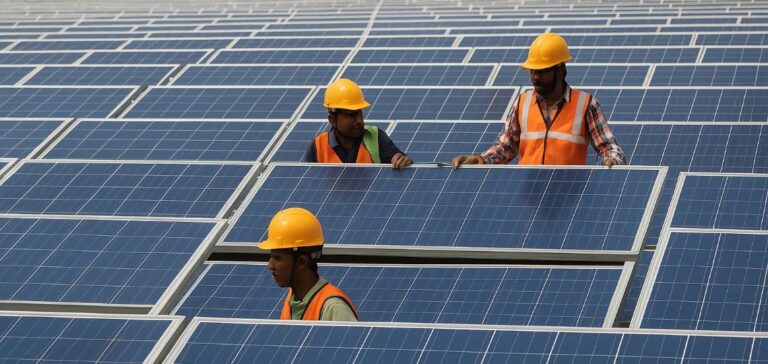Kaduna Electric, an electricity distribution company based in northern Nigeria, announced on May 23 the signing of a memorandum of understanding with J-Marine Logistics Limited and ASI Engineering Limited to develop a 100 megawatt (MW) solar power plant with a battery energy storage system. The project aims to provide more stable electricity supply in the states of Kaduna, Sokoto, Zamfara and Kebbi.
According to the released statement, the capacity will be distributed as follows: 60 MW for Kaduna, 20 MW for Sokoto, and 10 MW each for Zamfara and Kebbi. This project, which includes a Battery Energy Storage System (BESS), is expected to ensure supply continuity beyond solar generation hours.
A structural energy deficit
Nigeria has more than 86 million people not connected to the national grid, according to the latest government estimates. This represents the highest number globally in absolute terms. The National Energy Pact, supported by the World Bank under the Mission300 initiative, sets a goal of universal electricity access by 2030 and aims to increase the share of renewable energy in the electricity mix from 22% to 50%.
In this context, Kaduna Electric’s project aligns with a strategy to decentralise the grid and diversify power sources. Kaduna Electric’s Managing Director, Umar Abubakar Hashidu, stated that the initiative would “stabilise power supply and support economic activity” in the targeted areas.
Associated industrial development
The project may also lead to additional industrial investment. J-Marine Logistics Limited has indicated it is assessing the construction of a solar panel manufacturing facility in Kaduna State. The plant is expected to have an annual production capacity ranging from 200 to 500 MW, based on initial planning.
Such an infrastructure would support the local supply chain for future solar installations while reducing dependency on imported photovoltaic modules. It would also contribute to building a regional energy ecosystem backed by local industrial capabilities.
A growing decentralised energy model
In response to the limitations of the national grid and the widespread use of diesel generators, Nigerian authorities are increasingly turning to regional energy solutions. Available data suggest that the installed capacity of private generators in Nigeria is estimated to be ten times greater than that of the public grid.
Implementing projects that integrate solar power and storage in areas distant from the centralised network offers a concrete response to existing constraints. This type of initiative may also reduce operational costs associated with heavy reliance on fossil fuels for self-generated electricity.






















